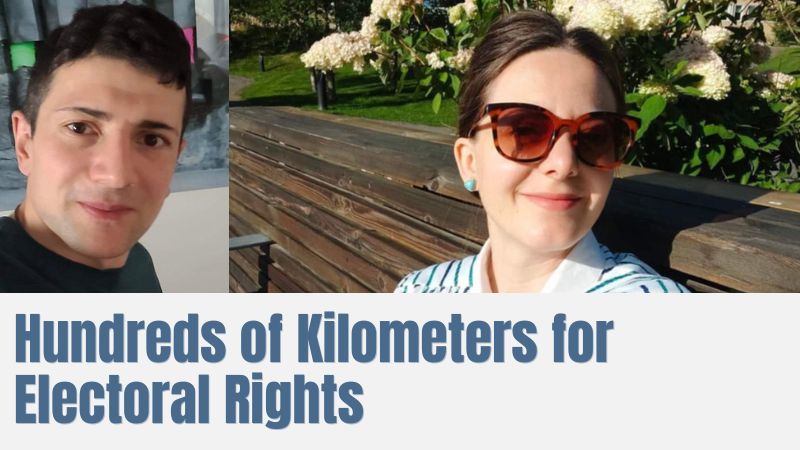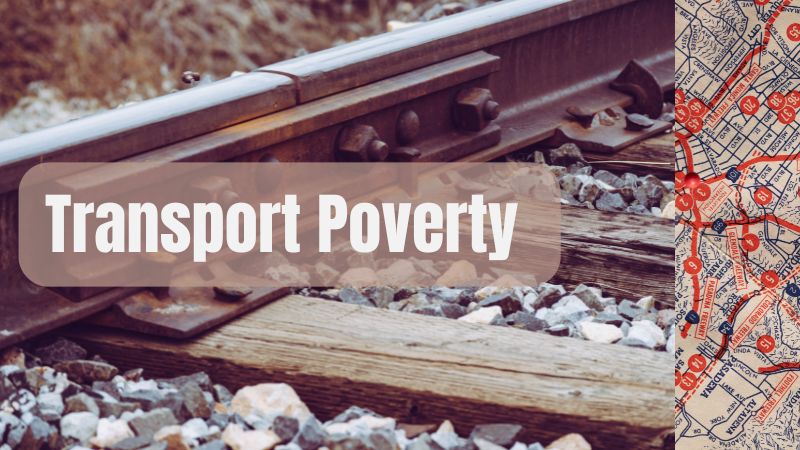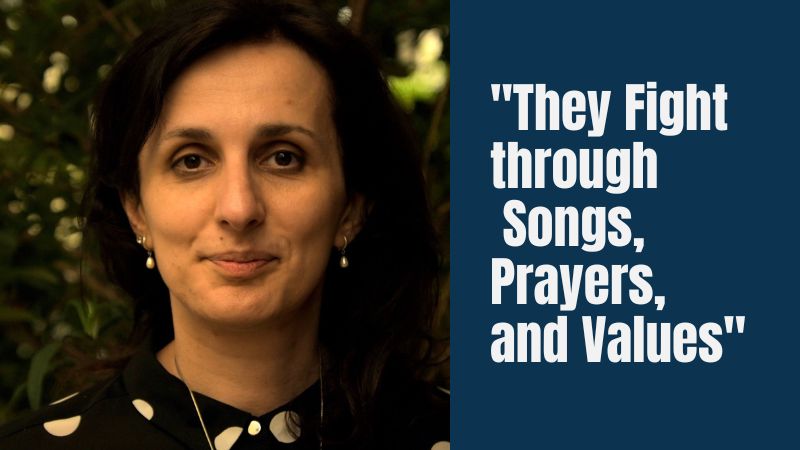“To cast my vote, I’ll need to travel for 8 hours and spend approximately 1’000 Canadian dollars,” says Misha, a 32-year-old social worker.
Misha Shishinashvili has lived in Canada for 10 years. He’ll participate in the parliamentary elections for the first time as an overseas voter. From his home in Saskatchewan province, it’s over 2’900 kilometers to the nearest polling station. Misha must travel to Ottawa one day before the election to reach Georgia’s consulate and vote. This involves several hours of travel, multiple transportation changes, and significant financial expenses. “I’ll fly from Saskatoon to Toronto, which takes about 3.5 hours. I’ll rent a car at the airport and drive to the Georgian consulate in Ottawa. From Toronto to Ottawa there is about a 4-hour drive. I’ll need to stay in a hotel since this all has to happen the day before the election, creating additional expenses.”
Despite the difficulties, Misha believes every vote matters and Georgia’s future depends on it. He says most Georgian emigrants living in Canada can’t afford the trip to Ottawa, and no polling stations have opened in other major cities.
Gvantsa Tvaliashvili also bought plane tickets. The 31-year-old student studying for her master’s in Sweden will need to fly from her city to Stockholm on the election day. Gvantsa believes one polling station isn’t enough for a country with Sweden’s geography, as train travel from south or north to the capital takes 6 hours, with an average one-way ticket costing 80 euros. “I bought plane tickets because I couldn’t make it to the polling station by train. We had to spend material and non-material resources, but we’re ready for anything to save the country,” says Gvantsa.
A few weeks ago, Gvantsa posted her route on Facebook. The Georgian student wrote that to participate in the elections, she needed to travel 633 kilometers and book a hotel in Stockholm. “The post’s purpose is to show those who are reluctant to take a few steps from home, how important these elections are,” Gvantsa wrote. The post received significant response and was shared in numerous groups, with Georgian voters from different countries beginning to share their own routes. “People started offering help. Georgians living in cities offered accommodation to those with hotel expenses. After this post, many wrote to me offering free stay in Stockholm. Many of my friends living in different European cities also wrote that they would host voters on the election day,” says Gvantsa.
Gvantsa’s story resonated with voters living in Georgia too. “I’m very happy that my post became an argument for others. For example, my neighbor said their vote didn’t matter and wasn’t planning to go to the neighboring village. They were told, ‘Look, Gvantsa has to travel 600 kilometers, and you don’t want to go to the next village.’ This fact makes me very happy, that was exactly the goal,” Gvantsa tells us.
Gvantsa says her main motivation is freeing the country from its biggest enemy, Russia’s grip. Like Misha, she believes each vote has special significance and this is the only thing we can do for the country now.
Unlike Gvantsa, Iamze Kovald struggles to convince her family member. The 56-year-old emigrant has lived in Leoben, Austria, with her spouse for 9 years. This is also her first time voting as an overseas voter. She says she was less informed before, “but now – staying silent is a crime.” “Unfortunately, I couldn’t change my sister’s mind. All resources are exhausted, she won’t go to vote, especially living in Tbilisi. I’m very sad that I couldn’t explain why voting is necessary,” says Iamze.
She stays informed about current events in the country. To reach Vienna to vote, she’ll need to change two modes of transport and make several train station transfers. She says three hours of travel is nothing, given how strong her motivation is to see her country prosper: “Keep our country far from Russia, God forbid that the EU finally refuses us because we’re clearly heading toward Russia. I’m very concerned and I’m in all active groups so I don’t miss anything.” Iamze tells us that many emigrants in Austria write about election-related topics. She says most Georgians living in Austria are in Vienna, so she expects many emigrants will come to the polling station.
David has similar expectations for Georgian citizens living in the United States. David Nadiradze, living in Philadelphia, will vote in New York. The 36-year-old marketer offers free car transportation to those who lack financial resources to get to the polls. As he tells us, people are self-organizing in Facebook groups and offering rides to each other. “They’ve created so many barriers already, and we need to help each other not only to vote but to ensure we won’t face administrative problems on site. Commission chairs are spewing personal hatred, some even threaten emigrants with deportation. I want to warn such people that we know who they are, what they’re doing, and every crime will be answered to. There’s unprecedented mobilization, yet polling stations for so many people are in one building. I don’t even know how many hours we’ll have to stand in line,” says David.
Some citizens have united around the groups “Daitsavi” and „1Mokalake1Archevani“ and launched the #გამიყოლე (gamikole – take me with you) and #გაგიყოლებ (gagikoleb I’ll take you with me) campaign. The group is sharing a video address from the founder of “Daitsavi”, Koka Jakhutashvili: “Join thousands of Georgians who are creating the initiative #Gamikole and #Gagikoleb. This year’s elections in Georgia are historic, and like never before, each voter’s voice determines Georgia’s European future. If you have a driver’s license and a car, register – let’s help citizens reach polling stations together. If you know a citizen who needs our help – share the link. Let’s protect our constitutional right together – our and our children’s European future.”
On October 11, the Central Election Commission announced that seven additional polling stations were created for voters abroad. The creation of polling stations was based on updated data about overseas voters.
According to the CEC, the number of eligible voters abroad is 95’834. In total, voters abroad will be served by 67 polling stations in 42 countries.
Less than 48 hours remain until polling stations open. On October 26, Georgian citizens living in Georgia or abroad, in different parts of the world, will make their choice. Dozens and thousands of kilometers covered by foot, car, train, or plane will bring one result – it will determine the country’s fate for four years and beyond.







